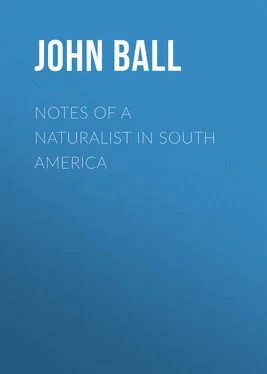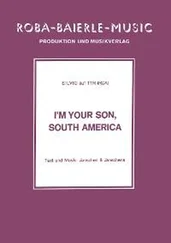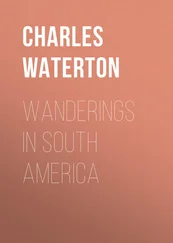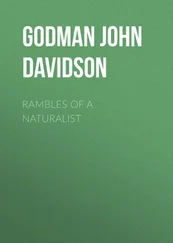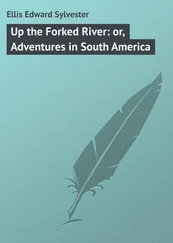John Ball - Notes of a naturalist in South America
Здесь есть возможность читать онлайн «John Ball - Notes of a naturalist in South America» — ознакомительный отрывок электронной книги совершенно бесплатно, а после прочтения отрывка купить полную версию. В некоторых случаях можно слушать аудио, скачать через торрент в формате fb2 и присутствует краткое содержание. Жанр: foreign_antique, foreign_prose, на английском языке. Описание произведения, (предисловие) а так же отзывы посетителей доступны на портале библиотеки ЛибКат.
- Название:Notes of a naturalist in South America
- Автор:
- Жанр:
- Год:неизвестен
- ISBN:нет данных
- Рейтинг книги:4 / 5. Голосов: 1
-
Избранное:Добавить в избранное
- Отзывы:
-
Ваша оценка:
- 80
- 1
- 2
- 3
- 4
- 5
Notes of a naturalist in South America: краткое содержание, описание и аннотация
Предлагаем к чтению аннотацию, описание, краткое содержание или предисловие (зависит от того, что написал сам автор книги «Notes of a naturalist in South America»). Если вы не нашли необходимую информацию о книге — напишите в комментариях, мы постараемся отыскать её.
Notes of a naturalist in South America — читать онлайн ознакомительный отрывок
Ниже представлен текст книги, разбитый по страницам. Система сохранения места последней прочитанной страницы, позволяет с удобством читать онлайн бесплатно книгу «Notes of a naturalist in South America», без необходимости каждый раз заново искать на чём Вы остановились. Поставьте закладку, и сможете в любой момент перейти на страницу, на которой закончили чтение.
Интервал:
Закладка:
At about thirteen thousand feet above the sea we passed two farmhouses, evidently constructed by European settlers, plain but neat in appearance, and the fields better kept than one could have expected in a spot so remote, each with a clump of well-grown trees of the Peruvian elder. Higher up the scenery was constantly wilder, desolate rather than grand, and with no trace of the presence of man until we reached Casapalta, a small group of poor sheds now occupied by an outpost of Chilian soldiers, nearly fourteen thousand feet above the sea.
ALPINE REGION IN THE ANDES.
We had now evidently reached the true Alpine region. At the head of the valley in front fresh snow lay on the flanks of the mountains where the dark rugged masses of volcanic rock were not too steep to allow it to rest, and the higher summits in the background were completely covered. The slopes near at hand were carpeted with dwarf plants thickly set, rising only a few inches from the surface. The only exception was an erect spiny bush, growing about eighteen inches high, with dark orange flowers, one of the characteristic Andean forms — Chuquiraga spinosa .
The guide seemed disposed to halt here, but we had not yet reached our goal, and we pushed on for about three miles, to a point about 14,400 feet in height, where it seemed judicious to call a halt. For some time the horses had begun to show symptoms of distress. The spirited animal which I rode panted heavily in ascending the gentle slope, and at last was forced to stop and gasp for breath every thirty or forty yards. Near at hand a slender stream had cut a channel through some rough rocks, and promised a harvest of moisture-loving Alpine plants; and opposite to us, on the northern side of the valley, a wild glen opened up a vista of snow-covered summits, of which the more distant appeared to reach a height of about eighteen thousand feet.
It was now about one o’clock, and, our light early breakfast being long since forgotten, we hastily swallowed our provision of sandwiches formed of the contents of a sardine-box, which, flavoured with the pure cold water of the stream, seemed delicious. Although the sun which had shone upon us during the morning was now covered with clouds, and we were very lightly dressed, no sensation of cold was felt at this height, and I do not believe that the thermometer at any time during the day fell below 50°. Doubtless the feverish excitement of those unique two hours of botanizing in a new world left no space for sensitiveness to other influences. The mountain-sickness of the previous night was utterly forgotten, and no sensation of inconvenience was felt during the day.
Reserving some remarks on the botany of this excursion, there is yet to be mentioned here one plant of the upper region so singular that it must attract the notice of every traveller. As we ascended from Casapalta we noticed patches of white which from a distance looked like snow. Seen nearer at hand, they had the appearance of large, rounded, flattened cushions, some five or six feet in diameter, and a foot high, covered with dense masses of floss silk that glistened with a silvery lustre. The unwary stranger who should be tempted to use one of these for a seat would suffer from the experiment. The plant is of the cactus family, and the silky covering conceals a host of long, slender, needle-like spines, that penetrate the flesh, easily break, and are most difficult to extract. Unfortunately, the living specimen which I sent to Kew did not survive the journey.
THE CONDOR AT HOME.
At about three o’clock it was necessary to think of returning. Several precious plants had been passed on the way and remained to be collected, and it was only prudent to return to our quarters before night, which here falls so abruptly. Soon after we started along the descending track, a whirring sound overhead caused us to look up. Two magnificent condors swooped down from the upper region, and, wheeling round about forty feet above our heads, described a half circle, and, having satisfied their curiosity, soared again to a vast height, till they seemed mere black specks in the sky. Meanwhile my horse, fresh after the long halt, and apparently delighted at the prospect of returning to pleasanter quarters, broke into a gallop, and throughout the way it cost me some trouble to restrain his impatience.
As we drew near Chicla, there being yet half an hour of daylight, we dismounted and dismissed our guide with the horses, thus being able to secure several plants not seen elsewhere. One of these was a solitary plant of the common potato, growing in a wild place among dwarf bushes near the stream. I do not, however, attach any importance to the fact as evidence on the disputed question of the true home of a plant which in South America has been cultivated from remote antiquity. The valley of the Rimac has doubtless been a frequented highway since long before the Spanish conquest, and, as we know, the plant spreads easily in favourable conditions. As far as I know, all the evidence as to the plant being indigenous in Peru and Bolivia is open to suspicion, and the only part of the continent where it can be said to be certainly a native is Southern Chili and the sub-Alpine region of the Chilian Andes.
The excursion to the upper region apparently completed the work of acclimatization. We slept soundly, and no symptoms of soroche was afterwards experienced. When I sallied forth on the morning of the 23rd in quest of breakfast, which was made luxurious by a tin of Swiss milk received by the train from Lima, I found my friend W – conversing in English with a Chilian officer. This gentleman, introduced as Captain B – , the son of English parents, was about proceeding in command of a small detachment to occupy some place beyond the Cordillera. The number of Englishmen in the Chilian service is not small, and there is no part of South America where the conditions of climate, the habits of life, and the character of the people seem to be so well suited to our countrymen.
One of the sights of Chicla was the daily despatch of trains of laden animals towards the interior. In the opposite direction the traffic was very limited, for since the war the working of the silver mines about Cerro de Pasco has been suspended, and little of the produce of the montaña now makes its way to the coast. But, war or no war, the wants of the inland population, living in a region which produces nothing but food and raw material, must in some measure be supplied. There was nothing very new in seeing goods packed on the backs of mules and donkeys, but the llamas and their ways were a continual source of interest. If the body be somewhat ungainly, the head with its large lustrous eyes may fairly be called beautiful. They vary extremely in colour. The prevailing hues are between light brown and buff, but we saw many quite white, and a few nearly black, with a good many mottled in large patches of white, and dark brown. The legs appear weak, and the animal can bear but a light burthen. On the mountain tracks, the load for a mule is three hundred pounds, that for a donkey two hundred pounds, while a llama can carry no more than a hundred pounds; and when any one attempts to increase the load, the animal lies down and moans piteously. He seems, indeed, not yet thoroughly resigned to domesticity, and there is a note of ineffectual complaint about his bearing and about all the sounds which he emits. One morning I was so much struck by what appeared to be the wailing of a child or a woman in distress, that I followed the sound until, behind a rock, I discovered a solitary llama that had somehow been separated from his companions. The advantage of the llama in the highlands of Peru, where fodder is scarce and must often be carried from a distance, is that he is able to shift for himself. Where the herbage is so coarse and so scanty that a donkey would starve, the llama picks up a living from the woody stems of the dwarf bushes that creep along the surface.
Читать дальшеИнтервал:
Закладка:
Похожие книги на «Notes of a naturalist in South America»
Представляем Вашему вниманию похожие книги на «Notes of a naturalist in South America» списком для выбора. Мы отобрали схожую по названию и смыслу литературу в надежде предоставить читателям больше вариантов отыскать новые, интересные, ещё непрочитанные произведения.
Обсуждение, отзывы о книге «Notes of a naturalist in South America» и просто собственные мнения читателей. Оставьте ваши комментарии, напишите, что Вы думаете о произведении, его смысле или главных героях. Укажите что конкретно понравилось, а что нет, и почему Вы так считаете.
